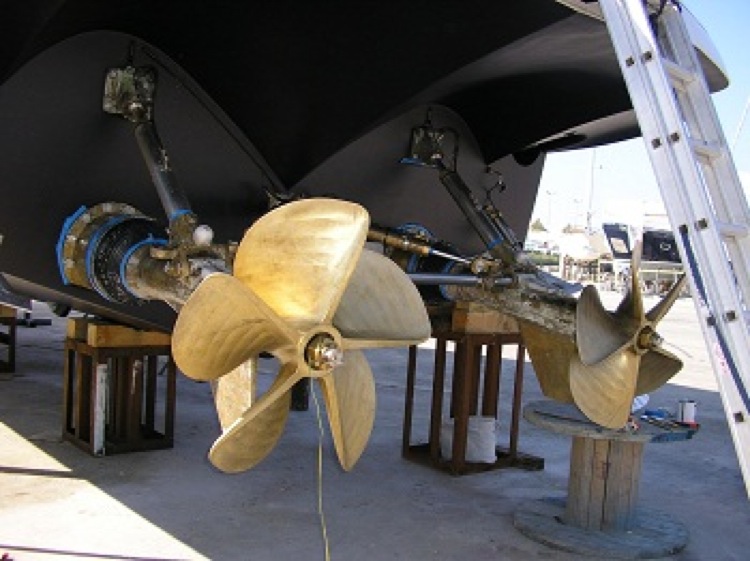5 Unavoidable Threats To Propeller And Rudder
Most boat rudders and propellers are cast from perpetual quality alloys in an effort to reduce corrosion and other wear from immersion and performance in seawater. Depending on the design and requirements of the boat, inboard rudders are well organized and not so susceptible to wear as the outboard ones.
Boat propellers are designed to suit the hull and engine configuration, having three, four, or five blades.
The following describes the repair of worn-out rudders and propellers:
1. Corrosion from seawater:
Propellers and rudders are usually cast correctly from high-quality alloys having resistance to seawater corrosion. Over time, immersion in seawater forms a film on the boat's propellers and rudders, acting as a protection against extended use in seawater.
However, cheaper inferior alloys that have been badly cast will not develop this overall protective film, but a patchy one. This allows the seawater to corrode the components, exhibiting the classic green color oxides in bronze components and red/brown oxides for stainless components.
2. Erosion
This is a mechanical form of corrosion caused by the rotation of the propeller producing air bubbles. These bubbles flow, constantly bombarding and bursting against the rudder surfaces, creating pitting.
3. Cavitation
Cavitation can attack the propeller on its scrolls or at the blade tips. It is caused by excessive loading or constant high revolutions. The blade tips become eroded due to the action of the seawater flowing around the tip of the blade from the pressure side to the suction side.
4. Galvanic Corrosion
This is caused by dissimilar metals in contact being immersed in seawater, an excellent electrolyte! This acts as a battery, with the current flowing from the less noble metal to the nobler one. For example, a bronze propeller fitted to a stainless steel shaft. Galvanic corrosion increases with a rise in temperature of the seawater, and galvanic coupling can also occur in a rudder or propeller that has been cast from an inferior alloy.
5.Electrolytic Corrosion
Finally, it is worth mentioning electrolytic corrosion. This occurs gradually due to bad earthing (grounding) of the components, but it becomes a really serious problem when the boat is tied up at a marina and connected to a shore electricity supply. The battery effect we saw in the galvanic corrosion is similar to this situation, except that this time stray currents provide the power. All boat fittings, including bronze rudders and props, create an electric circuit with the marina steel piles initiating the corrosion.
Let us know how to help you more. Call (+234)706 247 6068 now or visit www.ugpeotechnique.com to begin conversations with us.




